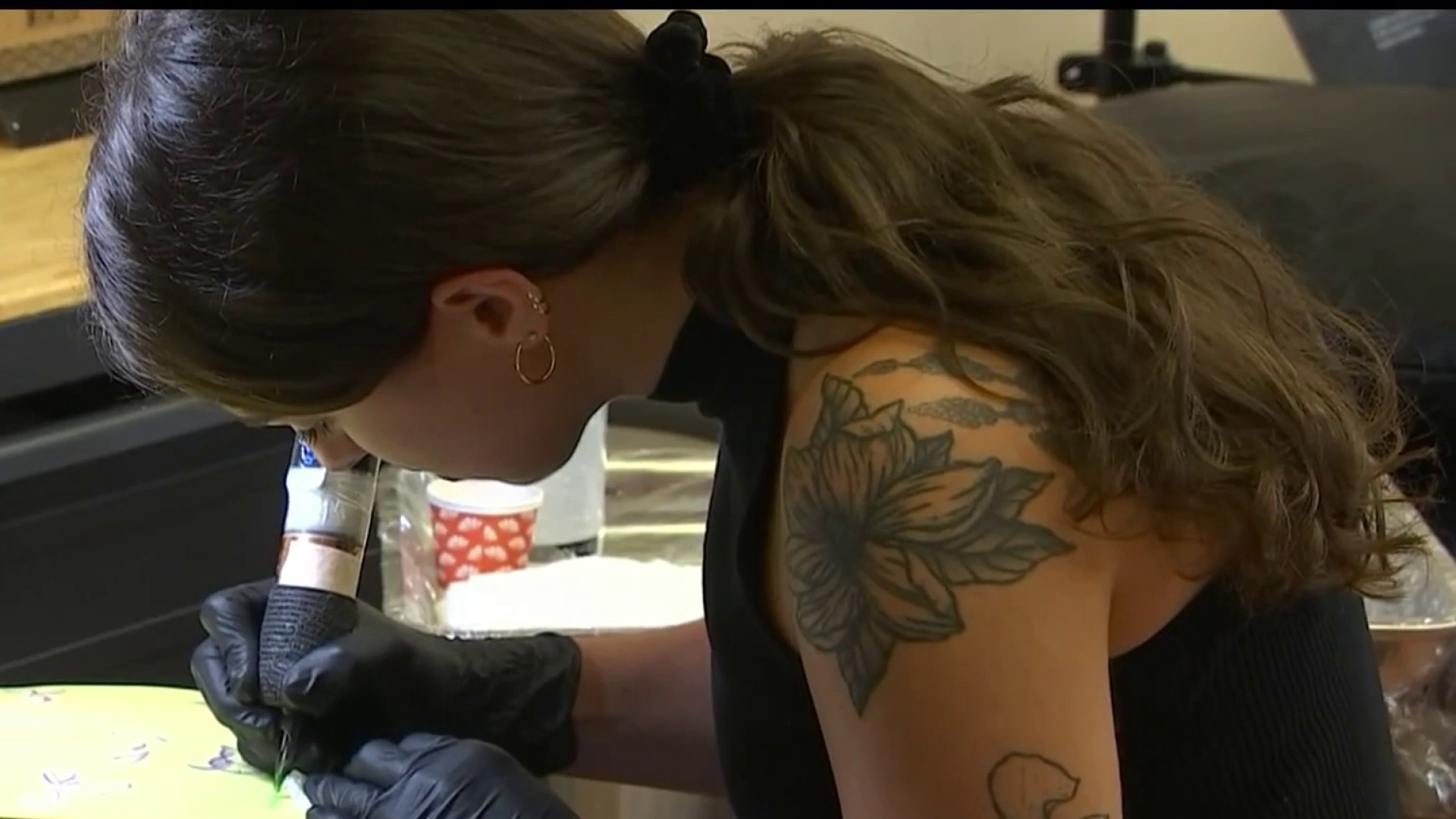Family members of two law enforcement officers slain in recent weeks have come out against Proposition 57, accusing Gov. Jerry Brown of attempting to deceive voters about the measure that would enable some inmates to be paroled sooner.
"Governor Brown, I'm calling you out on this," said Tania Owen, widow of Los Angeles Sheriff's Sgt. Steve Owen, who was shot to death on Oct. 5 while pursuing a burglary suspect in Lancaster. The accused killer, Trevon Lovell, was on parole.
Proposition 57 is entitled the "Public Safety and Rehabilitation Act of 2016," but opponents contend releasing some inmates sooner would have affect public safety negatively.
Tania Owen, herself a sheriff's detective, called Brown a "deceiver."
Other members of the Owen family, and David Kling, the father of slain Palm Springs Officer Lesley Zerebny and himself retired law enforcement, gathered Tuesday in the San Dimas office of the Professional Peace Officers Association to speak at a news conference organized by the No on 57 campaign, which is largely driven by members of law enforcement and prosecutors.
In a chilling moment, David Owen revealed that before his brother's death, Sgt. Owen had texted him a message about Prop 57.
"'And before I forget, tell all your friends: No on Prop 57. If that passes, crime is going to skyrocket. Bad'-- with three exclamation points," David Owen read. "Don't let my brother die in vain."
Local
Get Los Angeles's latest local news on crime, entertainment, weather, schools, COVID, cost of living and more. Here's your go-to source for today's LA news.
The Yes on 57 campaign maintains the proposed reforms to parole eligibility and added emphasis on rehabilitation would benefit public safety.
"It allows carefully screened non-violent offenders, who've completed their primary sentence, to apply for parole--not necesssarily get it," the Governor says in a radio spot now airing.
Opponents contend that the definition of "non-violent" as used in Prop 57 does include dangerous crimes including assault with a deadly weapon, hostage taking, human trafficking and a number of sex crimes.
"Incarcerating people who do bad things is a waste?" asked Millie Owen, mother of the late Sgt. Owen. "Give me a break!"
California remains under a federal court order imposing a cap on the prison population to limit overcrowding.
"Proposition 57 will reduce crime by allowing the state to focus prison spending on keeping these dangerous inmates locked up and prevent a court order forcing us to arbitrarily release prisoners," reads a statement issued by the Yes on 57 campaign in response to the criticisms voiced at the San Dimas news conference.
Prop 57 is the latest in a series of measures attempting to reduce the state prison population, including 2010's AB109, which shifted some of the prison responsibility to counties, and 2014's Prop 47, which reduced some drug possession offenses and certain other property crimes from felonies to misdemeanors.
Many in law enforcement, including Los Angeles Sheriff Jim McDonnell, see a connection between those earlier measures and the upturn in crime since 2014.
In January, during a teleconference, Governor Brown revealed his plan for what became Prop 57. He was joined by Los Angeles Police Chief Charlie Beck, who spoke approvingly of the Governor's goals, but said he could not publicly support it unless the leadership of the city of Los Angeles took a position, which it has not.
Brown has emphasized the rehabilitation goal of Prop 57. It would also require a judge's approval for the prosecution of a juvenile as an adult, taking that decision away from the discretion of prosecutors.
Prop 57 supporters include Dionne Wilson, whose police officer husband Dan Nieme was shot to death in the line of duty in 2005 in the Bay Area city of San Leandro. She now works with Californians for Safety and Justice. From her experience with inmates at San Quentin, she has seen the power of rehabilitation programs, she said.



